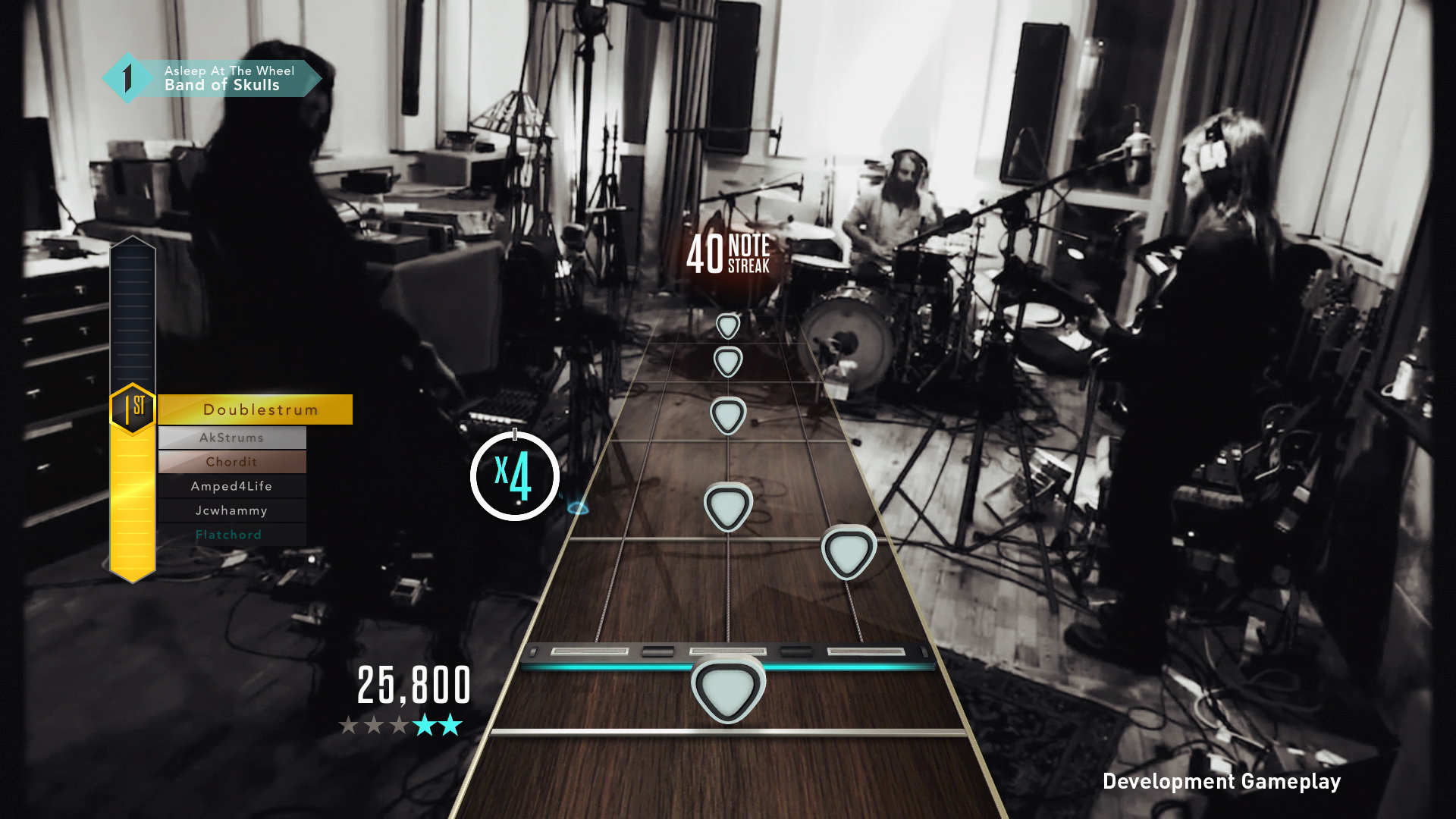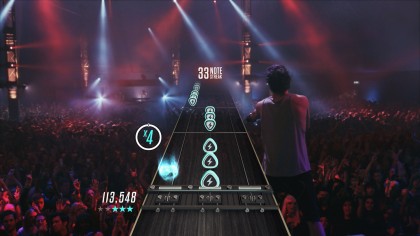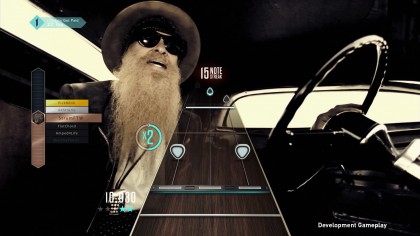Guitar Hero Live: changing with the times, or selling out?

Sign up for breaking news, reviews, opinion, top tech deals, and more.
You are now subscribed
Your newsletter sign-up was successful
I'll never forget the first time I picked up a Guitar Hero controller in the summer of 2006.
It was a hot, humid day in Nashville, Tennessee when I struggled through a song on easy before completely falling flat on my face on medium. And even though I failed, it was like nothing I experienced before.
It's difficult not to feel an overwhelming sense of nostalgia when you play Guitar Hero Live's new multiplayer mode, GHTV. It's setup to look and feel like '90s MTV, with music videos playing beneath a running score of how well you're doing against your friends.
There were two "channels" on the build I tested at E3 2015: a hard rock channel that played bands like Pantera and Rage Against the Machine, as well as a pop-focused channel that offered Bruno Mars and The Black Keys' "Gold on the Ceiling." (The latter, by nature of the pop genre, proved to be easier than the former, in case you're looking for a good entrypoint.)
But music videos aren't the only thing you'll see on GHTV. Activision plans on working alongside some of the top musicians in the world to record live concerts, from the perspective of the musicians on stage, and use them in lieu of music videos for certain songs.

Like a regular radio or television show, songs on Guitar Hero TV are queued automatically. Essentially, as long as you're on one of GHTV's channels, you're at the mercy of the virtual DJ as to what song is coming on next. You're able to back out at any time, however, and be greeted by a dynamic hub that uses your past song selections to recommend new and old content. But, best of all, GHTV is unlimited, free and builds a sense of community in a game that intentionally excludes drummers and singers.
You may have noticed that word "free" in the last sentence and thought, "Isn't everything on the $99 game I just purchased free?"
Sign up for breaking news, reviews, opinion, top tech deals, and more.
The answer is yes – sort of.
Guitar Hero's GHTV wants to be the premier place for new music, streamed from its servers directly to your system. In order to have all the new content in one place, there had to be some way to separate free, old content and free-ish new content.
The solution is called "plays." You earn plays by spending time either in the campaign mode that takes you on a whirlwind tour of two music festivals located in the US and the UK, or by competing with friends on the radio station version of GHTV.
Spending plays allows you to access new songs on-demand, periodically culminating in preview shows for more upcoming music. If you run out of plays, though, you can always buy more directly from Activision. If you think an upcoming preview show will have a cool new track that you want to play before anyone else you can buy your way into that, too.

Moreover, there's an option to unlock everything on the store for 12 hours, say, if you're having a party and want to have the maximum amount of songs at your disposal.
My demo-giver, one of the developers on the title, insisted that everything could be unlocked for free, so long as you were willing to spend enough time in the game. That said, they couldn't give me specifics on how much in-game time will equate to a single play.
The same representative told me there'll be a ton of songs to choose from when the service launches, stating that there will be hundreds of songs available on day one that draw from both classic songs found on previous Guitar Hero games, as well as completely new tracks.
The songs, the preview shows and music video-laden multiplayer mode were enough to convince me the final product will be worth buying, if the prevalence of microtransactions in a series that I once loved for its open nature doesn't kill the groove first.
Guitar Hero Live will release on the Xbox One, PS4, Xbox 360, PS3, Wii U and PC on October 10.

Nick Pino is Managing Editor, TV and AV for TechRadar's sister site, Tom's Guide. Previously, he was the Senior Editor of Home Entertainment at TechRadar, covering TVs, headphones, speakers, video games, VR and streaming devices. He's also written for GamesRadar+, Official Xbox Magazine, PC Gamer and other outlets over the last decade, and he has a degree in computer science he's not using if anyone wants it.